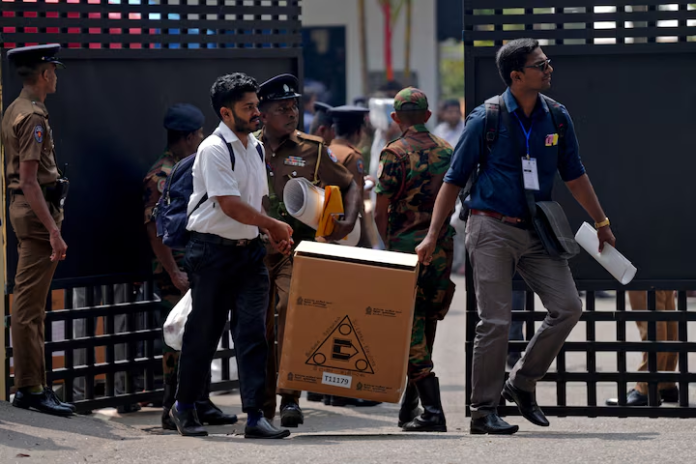Sri Lankans are voting in parliamentary elections key to the country’s new president Anura Kumara Dissanayake, according to AP News.
President Dissanayake won the presidential election on 21 September, marking a rejection of traditional political parties. They have governed Sri Lanka since its independence from Britain in 1948.
However, his failure to win more than 50 per cent of the vote heightened concerns about his party’s prospects in Thursday’s election. His party, National People’s Power (NPP), needs a minimum of 113 to control the 225-member parliament.
The biggest challenge for the NPP, founded in 2019, is that many of its candidates are emerging political figures. Of the 225 parliamentary seats, 196 are drawn under Sri Lanka’s proportional-representative electoral system. There are 8,821 candidates contesting for the 196 elected parliamentary seats.
The system allocates the seats in each district to parties according to the share of votes they receive. The remaining 29 seats are allocated to parties and independent groups according to the proportion of votes they receive nationwide.
While campaigning, Dissanayake urged voters to help elect them to parliament so that he would not have to rely on a coalition to implement his promised reforms.
The election comes at a crucial time for the people of Sri Lanka, which is trying to emerge from its worst economic crisis by declaring bankruptcy after defaulting on its foreign debt in 2022. The country is currently in the process of a salvation programme from the International Monetary Fund and debt restructuring to international creditors.
Economic and political crisis
Sri Lanka’s crisis was largely the result of poor economic management combined with the effects of COVID-19. Along with the 2019 terrorist attacks, the pandemic devastated the country’s important tourism industry, also disrupting the flow of remittances from Sri Lankans working abroad.
The economic turmoil led to a political crisis that forced then president Gotabaya Rajapaksa to step down in 2022. Parliament then elected Ranil Wickremesinghe to replace him. However, he lost the election as public discontent grew due to the government’s attempts to increase revenue by raising bills and taxes.
Dissanayake’s promise to punish members of previous governments accused of corruption and return allegedly stolen assets also raised great hopes among the public. Election results are expected on Friday.
